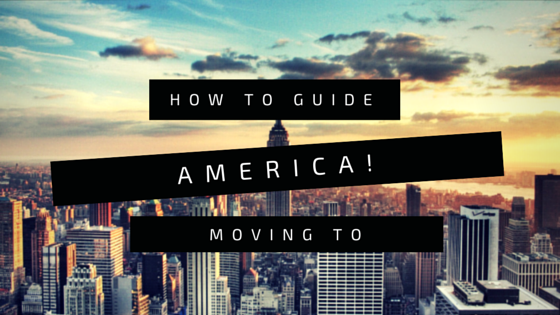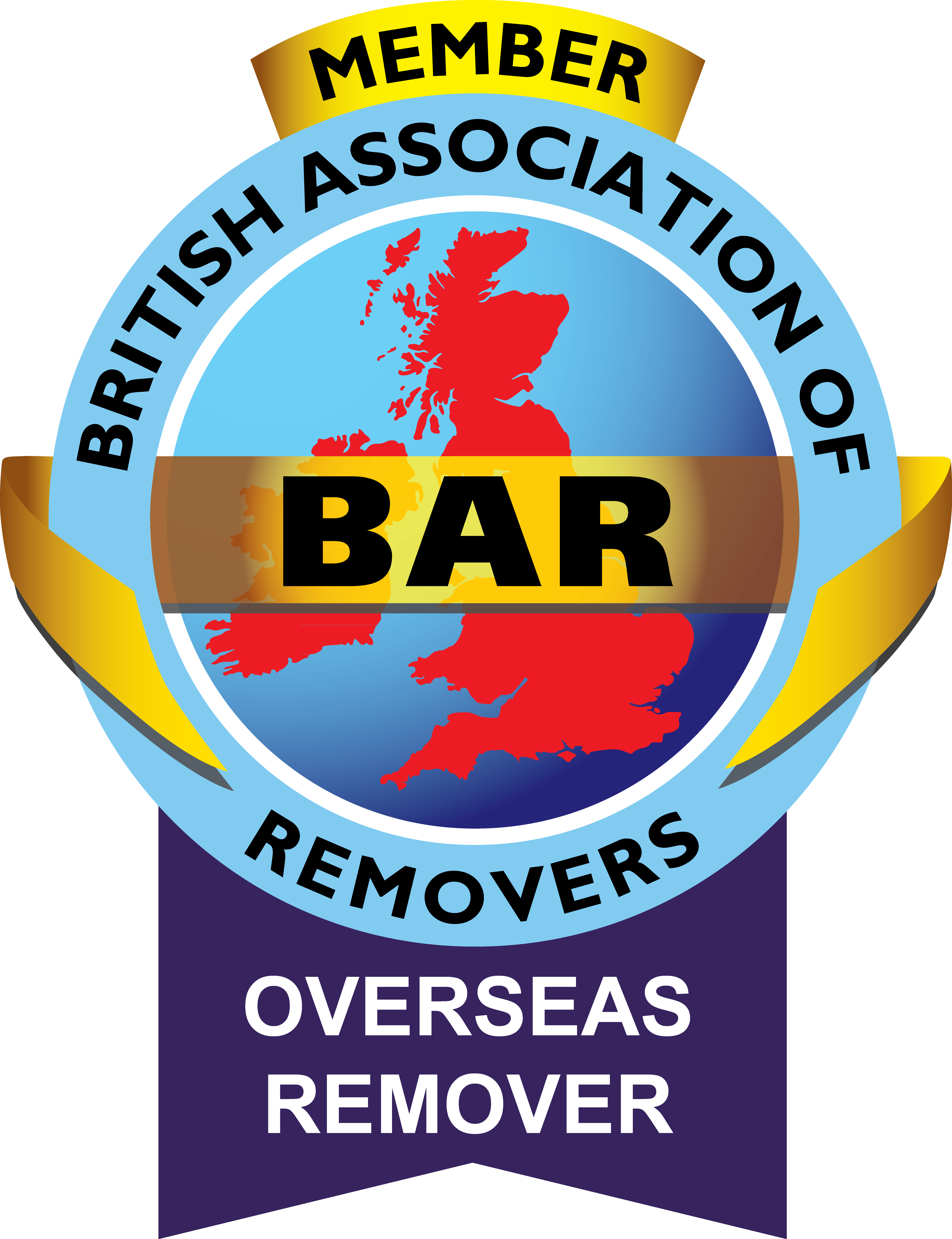
Guide To Moving To America
Moving to America is not a decision you can take lightly. Moving requires a lot of thought and pre-preparation, not unlike when you choose to move to any other country in the world. However, when it comes to the United States, the culture – although seemingly so very Western like our own – is actually very different, and can vary across each of the fifty different states. Americans do not take the decision to let foreigners into their country lightly, and for that reason, you will have to adhere to very strict visa rules, which you will have to apply and be approved for well in advance of even thinking about emigrating. However, once this is all complete, you will then need to consider things such as housing, finding work, schools, and fitting in.
Where To Move?
You probably already have an idea, or indeed a set city in mind, however, each American state and indeed city differs greatly. If you like a laid back environment and a sunny climate, perhaps you’d prefer California. For a past paced lifestyle, New York City or Chicago might seem like obvious choices, but these get beyond freezing in winter! However, there are plenty of hidden gems across America, all of which would be willing to welcome you with open arms. Nashville is a favourite among music lovers, the West coast is full of natural beauty, and Florida suits perpetual holiday-makers or ‘vacationers’. There are fifty states, all with their own benefits and beauty spots, so you should do plenty of research before you go – everything from the cuisine to climate will differ across each and every one.
Housing
Houses in America come in many shapes and sizes, with suburban areas often offering huge properties, and cities offering tiny apartments for ridiculous prices. Each end of the spectrum can be quite drastic, however this is much like in the UK – London prices vary greatly to the North, for example. For a detached property in a residential area, however, you will often be able to get a large property for a cheaper price than in England, and a mortgage will need to be negotiated with a mortgage broker and your realtor (estate agent equivalent). If you want to rent in NYC, however, you will find you will struggle much more on a budget, and may have to consider a commute from a less expensive area if this is an issue.
In America, many houses are less substantial than in the UK, with the materials favoured very often not being as durable as brick. However, this is starting to change in recent years.
Finding Work
Many people will be unable to legally enter the country without having already secured work with a sponsoring company, however, this isn’t always the case. In America, the process of job hunting is slightly different than in the UK, with employers typically requiring a one page resume as opposed to our standard CV. You don’t have a lot of space to show off your skills, so you really will need to use it wisely!
America has strict rules on which positions might be available to non-citizens, so the higher your skill set, or the more in demand your profession is, the more likely you are to secure work. Of course, if you are moving for reasons of marriage, for example, this might not apply, so you will need to check the conditions of your individual visa.
Working in America in general is often not the same as working in the UK. The tax system, for example, is very different, and many employees do not enjoy the same sorts of wages that they might here. Minimum wage varies per state, and many campaigns are ongoing that this is not a living wage, and many find themselves supplementing this with government aid. Alternatively, some people might find the salaries more attractive in the USA, it just depends on the industry and the package being offered.
Whilst British people typically have 20 days paid holiday per year as standard, Americans are lucky to even have a week or two. This can be quite a culture shock, and such days often have to be accrued for each year you are loyal to the company – it’s not a standard entitlement! American companies can also choose whether to offer healthcare benefits to employees or not, and also do not have to pay for sick days or maternity leave. This is something you should take into consideration before considering any lifestyle changes.
Office culture may also differ in the United States, depending on the location of your new role. Colloquialisms which may be encouraged in a UK office are very often frowned upon in America, and certain humour or other aspects of what we consider normal office culture may not be suitable for our American counterparts. Drug testing before getting a job is much more common in America, and failing (or committing any crime) could void your visa and mean you face deportation.
If you are looking for a position, typically Americans would use websites such as Monster, Career Builder and Indeed; these would be the specific branches targeted at their USA market.
Finding Schools
If you have children, you will want to feel confident that they will settle into the schooling system quickly and most importantly, comfortably. The American education system will differ slightly by state, but typically, children attend Kindergarten (ages four-six), Elementary School (ages six-ten), Middle School (ages 11-14) and then High School between the ages of 14 to 18. This is quite different already from the UK system.
Children in most American schools (commonly referred to as Public Schools) will not wear a school uniform, however, in Private Schools, this may often be a requirement. American children often take an iconic yellow school bus to school each day, because making their own way across often very spread out districts is often very impractical.
In America, children have less national testing, and more testing in school itself which they require to pass. Instead of GCSEs and A Levels, American students take SATS at the end of high school, which combined with extra-curricular activities, college essays, and their ‘grade point average’ (or GPA) throughout school can determine whether or not they will get in.
American colleges are typically either two years or four years, and you will hear many people refer to them as ‘schools’, although the terms ‘college’ and ‘university’ are also freely used, always in reference to higher education.
Transport
It is almost imperative that you will need a car in America, unless you are living in a city with incredible public transport links, which is actually very rare. Bus systems and trains do not extend to the same sort of network and efficiency as they do across the UK and Europe, and subsequently, many people are forced to drive, especially when everything is so very spread out.
The ‘high street’ is not really a staple of each town, and instead, many smaller areas simply have various malls, retail parks and other suburban areas which are almost inaccessible without a car. This is an important consideration to take into account, and you should ensure you have the relevant paperwork from the DVLA before departing if you wish to obtain a licence, and prepare to sit another test where necessary.
Please note that there is one spot of good news – petrol (known as ‘gas’) is a lot cheaper than the prices we see in the United Kingdom, although this is often all relative, and cars are often much bigger than they are here.
Culture
There is so much to do in America, and they don’t call it the land of dreams for nothing. Much like any location in the world, the people you meet and the opportunities you immerse yourself in can greatly shape the experience you have. American people can be very friendly, and of course, you will encounter those who aren’t so much. You shouldn’t let this affect you, because the same could be said of anywhere on the planet.
There are some ‘Americanisms’ you will undoubtedly have to learn, whether this is different grammar constructs, or simply catching up on the lingo. There will also be a few culture shocks – as owning guns is legal, you may find yourself being able to shop for a gun alongside your groceries! You will also find that especially in the Southern states, people are a lot more open about the main religion of the nation, Christianity, than you may be used to in Britain.
Most American cities will have great dining options, as well as great options for socialising, such as bars – although clubs are somewhat less common and the drinking culture is also typically not as prevalent except in the young. Of course, to drink legally, you must be over 21 years of age, which is important to note.
Music is a common pastime in America, as is sport. Emphasis is placed on both of these, with College sport being equally as revered as some of the larger, professional sporting teams. There are plenty of opportunities to catch a game in season, whether it be baseball, basketball, soccer or anything else. Many bands and artists also tour across the United States, so attending concerts would usually not be a problem.
Remember, America is a patriotic nation, and most of its diverse citizens are proud of their heritage and any other melting pot of backgrounds they may have. Saying that, British people are typically seen as somewhat charming to Americans, who are fascinated by our accents (when they can understand them!).















